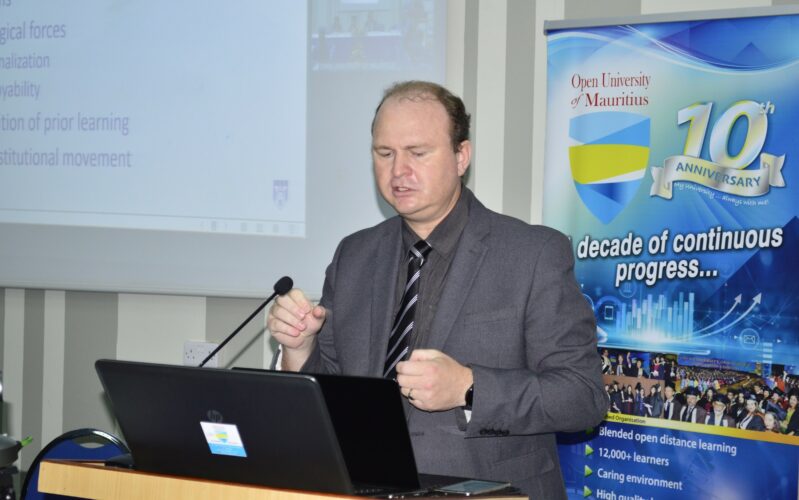
By Dr Jako Olivier
COL Adviser: Higher Education
It is not surprising that ‘complexity’ and ‘employability’ have similar etymological roots; issues around employability appear to be complex and potentially problematic in terms of open and distance learning (ODL). Firstly, emphasising employability as a goal for universities may not only narrow the focus but also go against what a university can and should be. Furthermore, when it comes to ODL, in many cases, students are already employed, making this a moot point.
However, higher education institutions find themselves at a crossroads in an ever-evolving higher education landscape where the nature of knowledge and the job market are shaped by technological advances, particularly the rise of generative artificial intelligence (AI). The relevance of courses, the soaring cost of qualifications, and the pressing need to enhance employability have become important points of discussion. As universities grapple with their role in this changing environment, it’s crucial to reevaluate how they prepare students for the dynamic employment landscape.
Employability, the ability to secure and sustain employment throughout one’s career, is central to this discussion. The increased emphasis on job outcomes and the commercialisation of higher education reflects a response to external needs. However, the fundamental question lingers: Is graduate employability the primary purpose of the higher education ODL sector?
From recent employability interventions by the Commonwealth of Learning (COL) and as per the COL Strategic Plan 2021-2027, we aim to assist in the development and implementation of employability frameworks; certain key successes stand out:
- Localised institutional solutions: Tailored approaches are needed to address regional employability challenges. Institutions must understand the national and institutional context, fostering collaboration with relevant stakeholders to identify beneficial contributions.
- Staff capacity building: Equipping staff with digital literacy and ODL skills is essential. Conducting a needs assessment and implementing ongoing professional development ensures educators are well-prepared for the digital era.
- Authentic assessment: Linking higher education to the workplace requires authentic assessment tasks. COL offers support for institutions in developing not only employability skills but also authentic assessments for ODL.
- Holistic institution-wide approaches: Instead of isolated interventions, institutions should adopt comprehensive, inclusive strategies. Responsibility for graduate employability should extend beyond specific departments and centres to encompass the entire institution.
- Policy and practice integration: Graduate employability skills should be embedded in policy and practice. Interventions should not be limited to policy drafting but should extend into teaching and learning practices that nurture employability.
In conclusion, as the world undergoes profound changes in the job market and the role of AI, universities must prepare students to be adaptable and resilient. Support for universities is crucial, emphasising the need for robust policies and implementation frameworks. Staff development, particularly in digital skills, is a linchpin in this endeavour. While many higher education institutions find them in a digitally divided world, a contextualised and data-driven realignment is imperative to address employability challenges in ODL.


